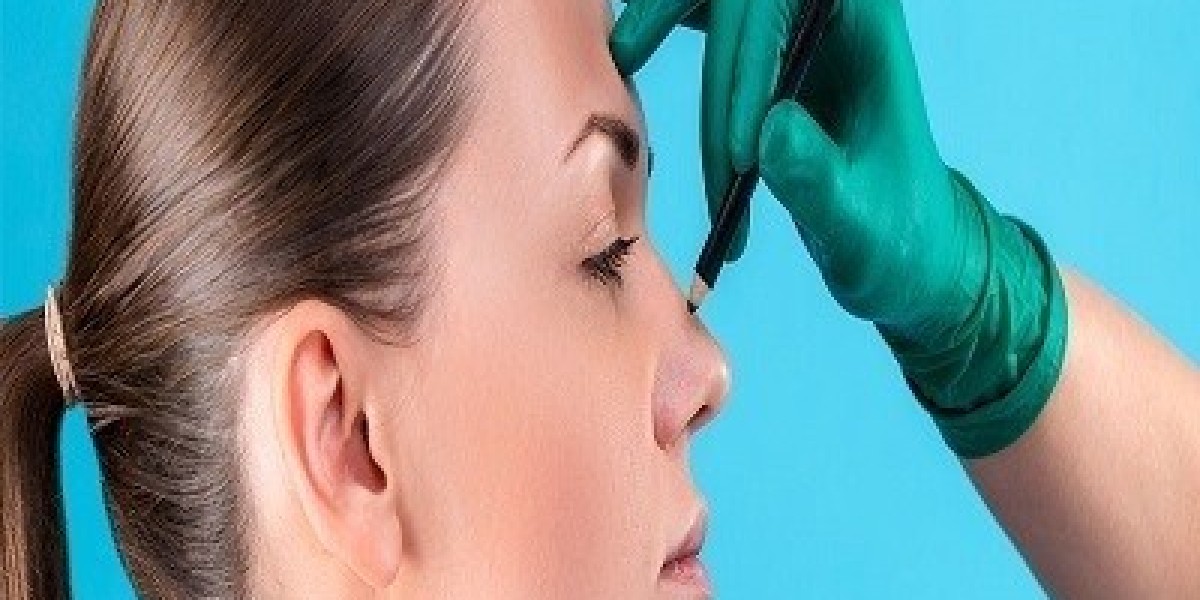Undergoing rhinoplasty requires thorough preparation to ensure optimal results and a smooth recovery. Whether the goal is cosmetic enhancement or correcting a functional issue, proper planning plays a vital role in achieving the desired outcome. As more individuals seek Rhinoplasty in Islamabad for expert-level care and natural-looking results, understanding the preparation process becomes essential for any prospective patient.
Step 1: Schedule a Comprehensive Consultation
The first and most crucial step in preparing for rhinoplasty is scheduling a detailed consultation with a board-certified plastic surgeon. During this meeting, you will discuss your aesthetic goals, review your medical history, and undergo a facial assessment. It is essential to be open about your expectations and any concerns you may have. The surgeon will examine your nasal structure and determine whether you are a suitable candidate for the procedure.
You should also bring a list of medications, supplements, and any previous surgical procedures. This helps your surgeon assess any risks and develop a personalized surgical plan.
Step 2: Understand the Procedure and Set Realistic Expectations
Before undergoing surgery, patients must clearly understand what rhinoplasty involves. The procedure may be open or closed, depending on the complexity and surgical goals. Open rhinoplasty involves a small incision on the columella, offering greater visibility and access, while closed rhinoplasty involves incisions within the nostrils and is suitable for less extensive changes.
It’s important to set realistic expectations and recognize that while rhinoplasty can enhance facial harmony, perfection is not the objective. A good outcome is one that improves both function and appearance while preserving individual features.
Step 3: Complete Necessary Medical Evaluations
Your surgeon may request several pre-operative evaluations, such as blood tests, imaging (like nasal X-rays or 3D facial scans), and a physical examination to assess your general health. These tests are essential in identifying any conditions that may affect the safety or results of the surgery.
Patients with existing nasal conditions such as deviated septum or chronic sinusitis may also undergo ENT evaluations to determine whether functional improvements should be incorporated into the procedure.
Step 4: Stop Smoking and Limit Alcohol Consumption
Smoking impairs blood circulation and significantly increases the risk of complications during and after surgery. Patients are strongly advised to stop smoking at least 4 to 6 weeks before surgery and continue abstaining throughout the recovery period. Nicotine restricts oxygen supply to the surgical site, delaying healing and increasing the risk of infection and scarring.
Alcohol should also be limited, especially in the week leading up to the procedure, as it can thin the blood and interfere with anesthesia.
Step 5: Discontinue Certain Medications and Supplements
Your surgeon will provide a list of medications and supplements to avoid before rhinoplasty. These typically include blood thinners, aspirin, ibuprofen, and certain herbal products such as ginkgo biloba, garlic tablets, or vitamin E, all of which can increase bleeding risk.
Always consult your surgeon before making any changes to your medication regimen. In some cases, alternative medications may be prescribed to manage existing health conditions safely during the pre- and post-operative phases.
Step 6: Plan for Post-Surgery Care and Recovery Time
Recovery after rhinoplasty typically takes 7 to 10 days for the initial phase, with full healing extending over several months. To ensure a smooth recovery, arrange for time off work or school and plan to have someone accompany you on the day of surgery and assist you for the first 24–48 hours.
Prepare a comfortable recovery area at home with essentials such as extra pillows (for head elevation), cold compresses, soft foods, prescribed medications, and entertainment to help pass the time during the early recovery period.
Step 7: Follow Preoperative Fasting Guidelines
If you are receiving general anesthesia, you will be instructed not to eat or drink anything for a specified period before surgery, usually 6 to 8 hours. This fasting requirement is critical for your safety under anesthesia and reduces the risk of aspiration.
Be sure to follow all preoperative instructions provided by your surgeon and anesthesiologist carefully. If you accidentally consume food or drink during the fasting window, your surgery may need to be postponed.
Step 8: Arrange Comfortable Clothing for Surgery Day
On the day of your surgery, wear loose, comfortable clothing that opens from the front, such as a button-up or zip-up top. Avoid garments that need to be pulled over the head, as this could disturb your nasal dressings post-surgery.
Additionally, do not wear any jewelry, makeup, contact lenses, or nail polish. Keep your face clean and free from skincare products on the day of the procedure.
Step 9: Mental and Emotional Preparation
Preparing emotionally for rhinoplasty is just as important as physical preparation. While the procedure is safe and effective, it still involves changes to your appearance that may take time to adjust to. Swelling and bruising are common during the initial recovery, and final results may take months to become fully visible.
Understanding the healing timeline and maintaining realistic expectations can help reduce post-operative anxiety and ensure a more positive experience. Open communication with your surgeon about your concerns will also aid in emotional readiness.
Step 10: Review and Sign All Consent Forms
Before surgery, you will be required to review and sign informed consent documents. These forms outline the details of the procedure, potential risks, expected outcomes, and your responsibilities as a patient. Take your time to read these thoroughly and ask any questions you may have before signing.
Consent forms are a critical part of the surgical process and demonstrate that you are making an informed decision about your treatment plan.
Conclusion
A well-prepared patient is more likely to experience a smoother surgical process and achieve favorable results. From medical assessments and medication adjustments to emotional readiness and post-operative care planning, every step plays a key role in successful rhinoplasty. If you are considering surgery in Islamabad, the SKN Cosmetics clinic offers comprehensive guidance and expert surgical care to help you prepare confidently and safely for your rhinoplasty journey.











